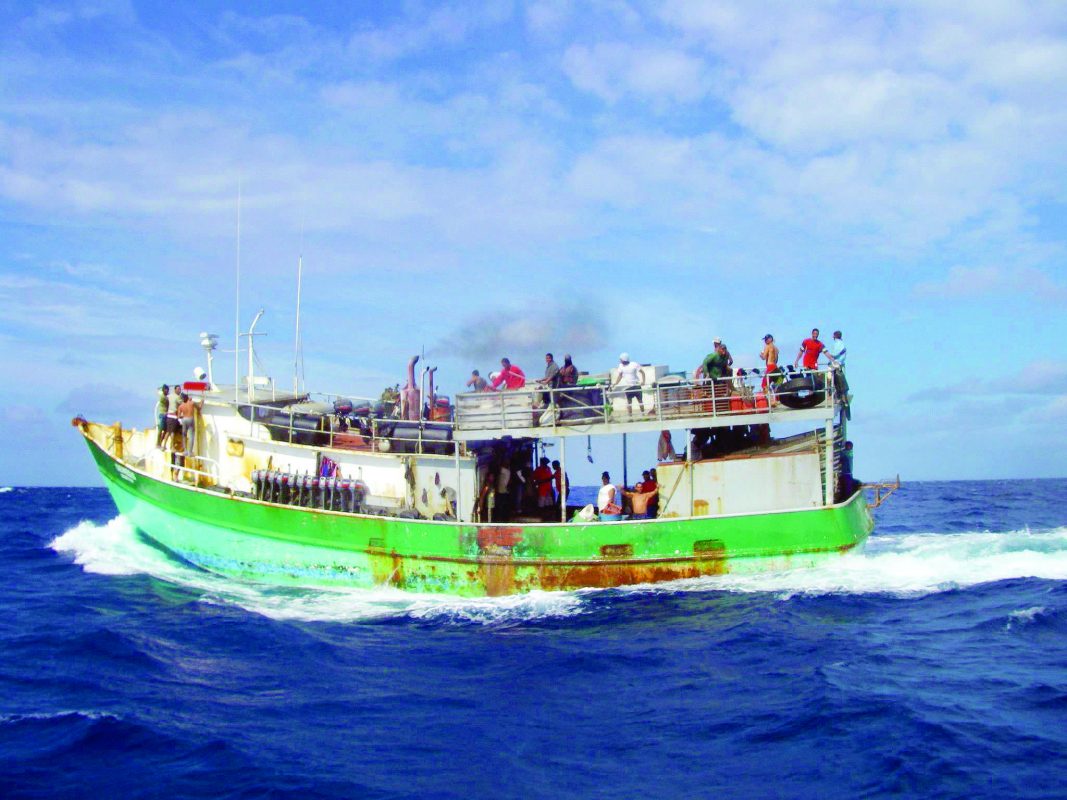
By Capt. Will Ward:
Of all the issues affecting our ability to enjoy a good day on the water and healthy marine ecosystems, illegal, unreported and unregulated fishing, known as IUU fishing or “pirate fishing,” poses one of the greatest threats. Pirate fishing is especially problematic—and infuriating—for those us who care about fishing and marine life in the waters of The Bahamas and the nearby waters of the western North Atlantic, including the Gulf of Mexico. In case you aren’t aware of the situation’s gravity, here’s what’s going wrong.
Bahamans have long recognized and decried the chronic incursions by foreign pirates stealing the islands’ livelihoods, namely the fish and lobsters. Illegal fishers from other island nations raid the waters of The Bahamas with impunity, degrading fishing opportunities for residents and visitors. They resort to this illegal activity because their own fisheries have been severely depleted due to poor management. The problem of other Caribbean nations poaching in Bahamian waters is so acute that the Bahamas Defense Force is teaming up with the U.S. Coast Guard to enforce fisheries laws. Despite those joint-enforcement efforts, the poaching continues. The Bahamas must work diligently to avoid facing the same fate of declining marine resources.
Poaching outside of The Bahamas Exclusive Economic Zone also hurts fishing businesses in the islands and tourism. Other poachers are stealing directly from fishermen far from the scene of the crimes. Most species of billfish and tuna caught in the Atlantic make long migrations to spawn in the Gulf of Mexico, where pirates poach millions of pounds of them, knowing full well that if they’re caught they’ll only face a minor penalty. This poaching not only affects Gulf fisheries, it undercuts efforts to rebuild iconic species such as bluefin tuna, which Bahamans hope will recover and return in strong numbers to the iconic waters surrounding Bimini, where modern big-game sportfishing was pioneered. The pelagic animals that fall prey to pirate fishing in the Gulf obviously will not help anglers win bluewater tournaments in The Bahamas.
Fortunately, there’s good news. This year, the United States Congress passed the Illegal Unreported and Unregulated Fishing Act of 2015, which President Obama signed into law on November 5. It allows United States law enforcement to arrest and prosecute pirates fishing in U.S. waters, and it allows the United States to enter into an international treaty that provides member nations with powerful tools and rights to combat pirate fishing – The Port State Measures Agreement.
In order to make prosecuting foreign pirate fishermen the law of the land in The Bahamas and ensure that pirate fishers never land fish in the islands, the government of The Bahamas must become a party to fisheries management treaties designed to tackle this very issue. One such treaty is the 2009 Food and Agriculture Organization’s Agreement on Port State Measures to Prevent, Deter, and Eliminate Illegal, Unreported, and Unregulated fishing (PSMA). Becoming a party to this cost-effective treaty should significantly curb poaching in Bahamian waters, while positioning The Bahamas to become a better partner in global efforts to stop this scourge on our oceans.
Capt. Will Ward is a based in Clearwater Florida. He has extensive fishing experience in U.S. and Bahaman waters. Capt .Ward serves as a consultant for the Gulf Coast Leadership Conference.